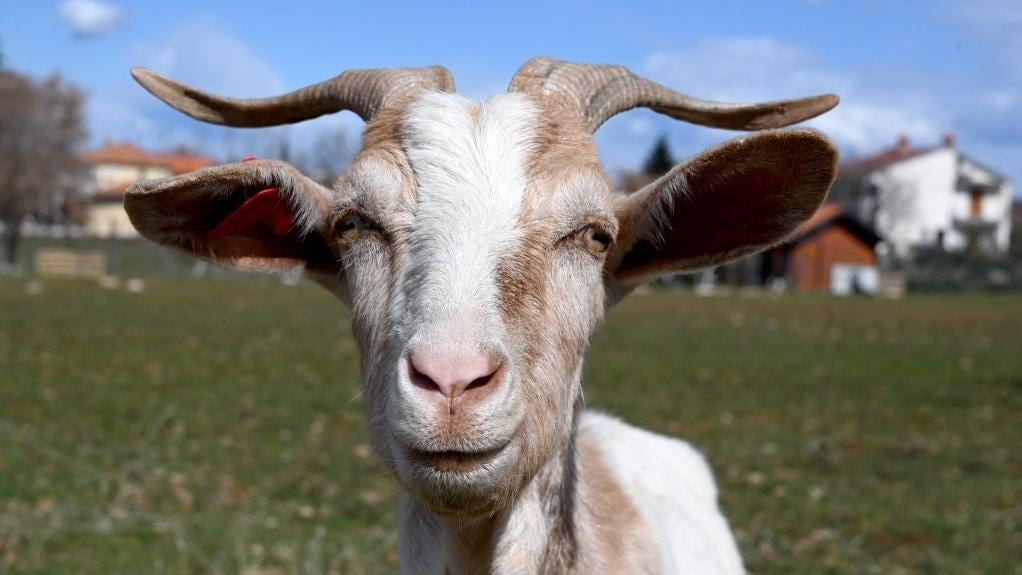The Rustic, No-Frills Vacation You Should Book Right Now
Skip the beach and take a trip that'll teach you something about the food you eat.
I birthed my first goat in 2019. Technically, it was two goats—twins, both of whom had to be warmed a hair dryer while the goat farmer tended to their stoic mother. Sockless and pajama-clad, I was summoned around 6:30 a.m. to assist with the labor. I staggered out of my bedroom, crammed my bare feet into some muddy sneakers, and hobbled into the backyard goat barn to welcome the screaming kids into the world.
Kidding season was the highlight of my months-long stay on an urban goat farm in Chicago's west side. I had just moved to the city and needed temporary lodging until I could secure my own apartment, so I rented a cheap room in an old house whose residents included one middle-aged couple, three students, a rotating roster of Airbnb guests, two dozen laying hens, three cats, and a small herd of goats. My time there was far from idyllic—there were two bathrooms and only one shower—but it ignited my passion for small-scale agriculture. Now, I think every foodie should embark on at least one farm stay.
What is a farm stay?
Farm vacations, also known as farm stays, are a subset of agritourism, or tourism meant to connect travelers with local agricultural systems. Agritourism experiences range from beekeeping classes to mushroom foraging expeditions to luxurious trips to Colombian coffee farms, but farm stays are often the most affordable and accessible subset of this growing tourism trend.
Think of a farm stay as an immersive, rural bed and breakfast experience. Not only will you get a cheap roof over your head, but you can also take advantage of extras like farm tours, classes, and homegrown food throughout your stay. Whether you stay for a night or a whole month, you'll reap the benefits of fresh air and, potentially, fresh eggs.
Finding a farm stay
Farm stay accommodations vary wildly by location. To find the right farm stay for you, consider a few factors:
- Lodging: With options ranging from onsite tents to rustic cabins to modern farmhouses, farm stays come in all shapes and sizes. If you'd rather not spend the night under the stars, that's totally fine—but keep that in mind before you book a stay at a farm with outdoor accommodations.
- Your culinary interests: Do you want to commit to eating more meat from small family farms? Are you interested in learning more about locally grown organic produce? Maybe you're curious about specialty products like honey, coffee, or tea. Whatever the case, you can channel your culinary interests into your farm stay. Some even offer classes ranging from beekeeping to butchering. If you're not sure where to start, Farm Stay U.S. can match you to a farm depending on your interests. Just select from the site's menu, which includes options like "I want to milk a cow" or "I want to harvest food."
- Travel: You don't have to go far to find a farm stay—but you can if you like. You can find extended farm stays around the globe, including an organic vegetable farming class in scenic Perthshire, England.
Ultimately, if you'd like to get better acquainted with your food, a farm stay is the best way to do it. At the very least, it'll help you put a face to farming. If you're lucky, you might even birth a goat. Or two.
